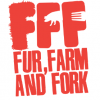Hello everyone,
I'm usually mostly a lurker, and this forum has provided me with so much valuable information. However I do have a question that I cannot seem to find a good answer to.
Our company produces both RTE refrigerated and RTC frozen items that are sold in convenience stores. Most are sold in cases intended for preparation and consumption "on-site". However, we have added label stickers to a few items and have apparently given the option to our stores to also sell these at retail (this apparently happened before I was with the company). The problem that I see with this is that there is no lot coding printed on the individual items that are offered for potential retail sale; only on the cases containing the individual items is there printed lot information.
I've done hours of searching and from what I can see, there is no specific legislation from either the FDA nor the USDA (we are dual jurisdiction) requiring lot numbers on RTE/RTC frozen items. However I do realize the potential risk this presents with our company in the event of a recall situation involving individual items sold for retail without a lot number. I deduce this would mean a complete and total recall, possibly involving every item produced on that specific line.
Is there specific legislation that I've missed somewhere regarding lot numbers on individual retail items? And are there other risks to our company that have not been realized thus far?
Just wanted to gather some thoughts on the issue so I can present the risk to management in terms of realistic potential consequences.










